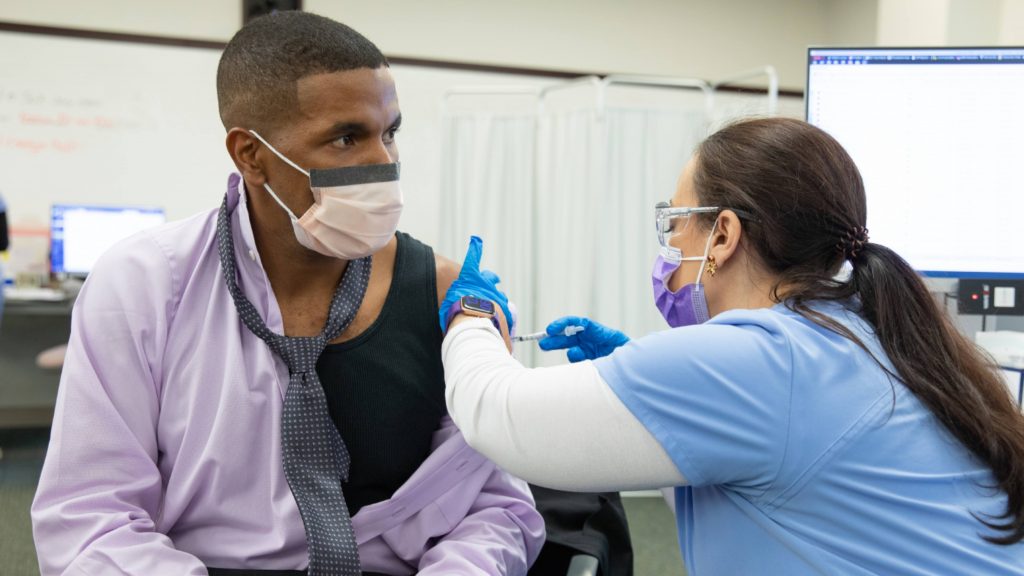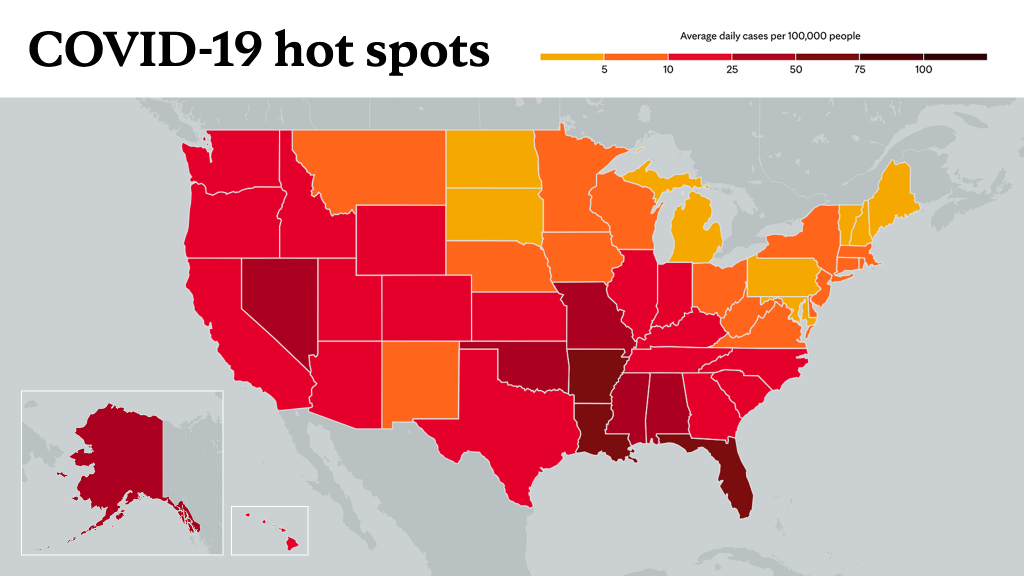
As the highly infectious delta variant continues to spread, health officials are urging everyone to get vaccinated for COVID-19. Outbreaks of infection are in areas where COVID-19 vaccination is low. More than 609,000 people in the U.S. have died from COVID-19 since the pandemic began.
Dr. Ivan Porter II, a Mayo Clinic nephrologist, says he's talked with many of his patients, community members and family members about misconceptions and fears surrounding COVID-19 vaccines.
"I want to be sure that everyone understands the importance of vaccination," says Dr. Porter. "While we may be nervous about what could happen, we have to understand what we know. And what we know is that those who are vaccinated are less likely to die from COVID. They are less likely to have a severe case of COVID. We have to take that information and understand the importance of vaccinations to protect our community."
Watch: Dr. Ivan Porter II discusses the importance of COVID-19 vaccines.
Journalists: Broadcast-quality sound bites with Dr. Porter are in the downloads. Please courtesy: "Ivan Porter II, M.D./Nephrology/Mayo Clinic."
Anyone living in the U.S. who is eligible to receive the vaccine can be vaccinated for COVID-19 for free, regardless of insurance or immigration status.
"There are a number of misconceptions about the vaccine," says Dr. Porter. "Cost may be one of them. This is free for all people in the U.S. This is not something that you're going to have to worry about paying for, even if people are taking your insurance information for record-keeping purposes."
Common side effects are short-term pain, redness and swelling on the area where you got your shot.
"There are other misconceptions about side effects. And it's very easy for someone to debunk side effects that really haven't been proven. And we know that there are some real side effects ― some pain at the side of the vaccination or cold-like symptoms after you get vaccinated. But we have to look at the big picture and know that those mild symptoms that one may have for one or two days are going to be much less of a problem than the problem of COVID and hospitalization ― and also the risk that you may give COVID to other members of the community," says Dr. Porter.
Being fully vaccinated for COVID-19 protects you and those around you from getting infected and from spreading the infection.
"The benefit of you receiving the vaccine now is beneficial to you and every other member of our population. Even if you're hesitant, it's fine. Talk to someone who you know, talk to a trusted member of your community, talk to your physician, your medical care team. But you need to be vaccinated to protect yourself and to protect the people around you," says Dr. Porter.
Related posts:
- Mayo Clinic Q&A podcast: Stopping the spiral of the COVID-19 delta variant.
- COVID-19 vaccine urgency as delta variant continues to spread.
- Unvaccinated people at highest risk of being infected by delta variant.
______________________________________
For the safety of its patients, staff and visitors, Mayo Clinic has strict masking policies in place. Anyone shown without a mask was either recorded prior to COVID-19 or recorded in a nonpatient care area where social distancing and other safety protocols were followed.
Information in this post was accurate at the time of its posting. Due to the fluid nature of the COVID-19 pandemic, scientific understanding, along with guidelines and recommendations, may have changed since the original publication date.
For more information and all your COVID-19 coverage, go to the Mayo Clinic News Network and mayoclinic.org.
Learn more about tracking COVID-19 and COVID-19 trends.








